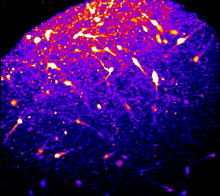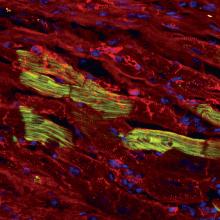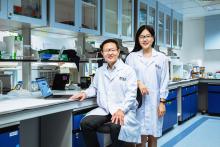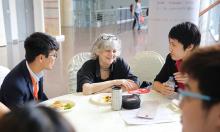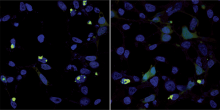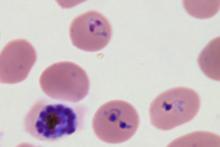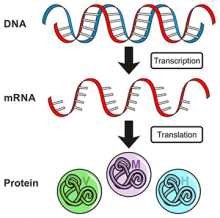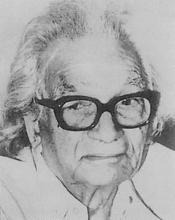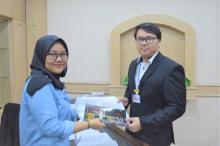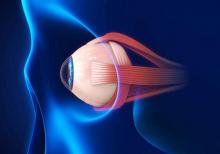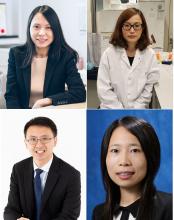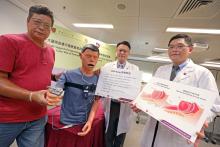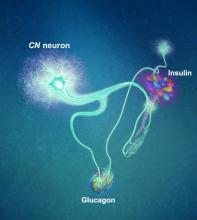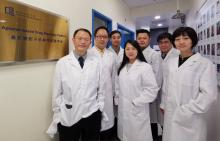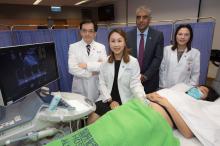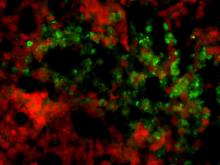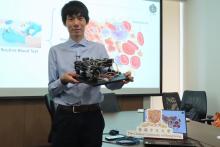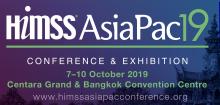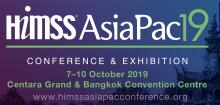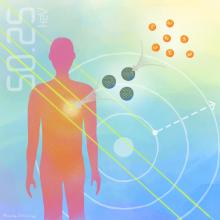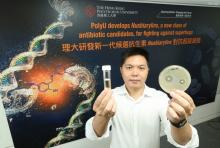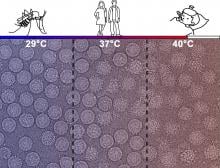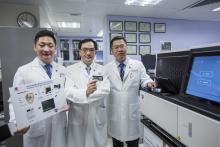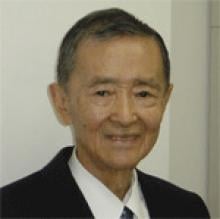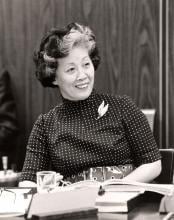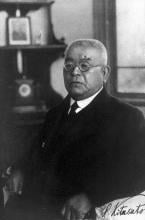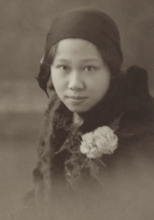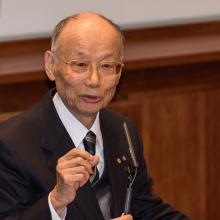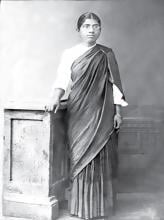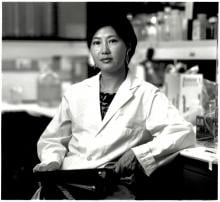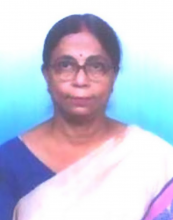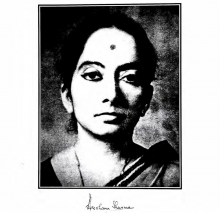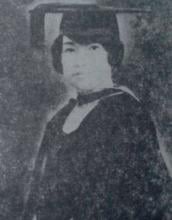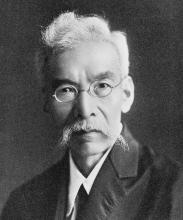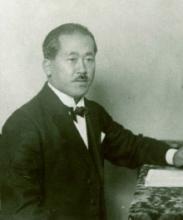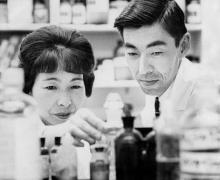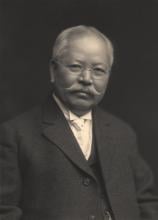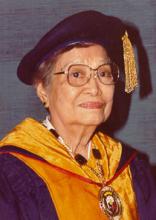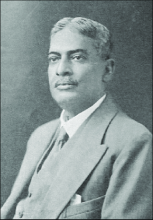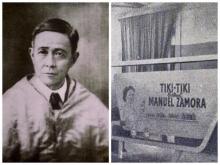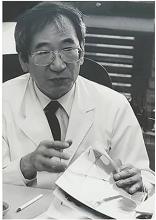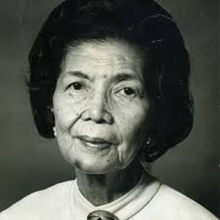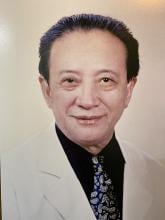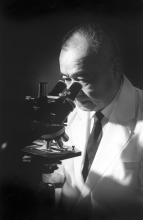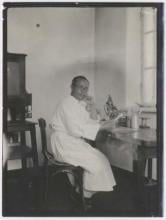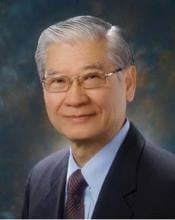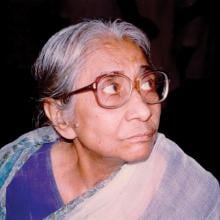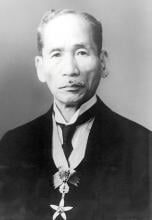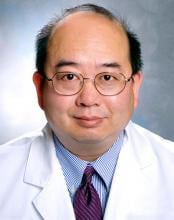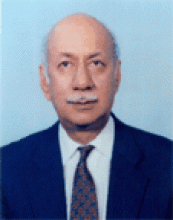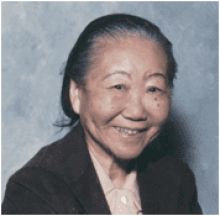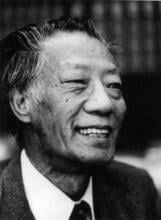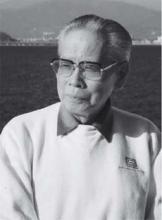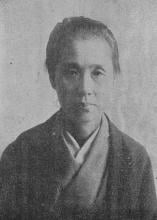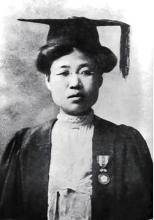Medicine
News
15 Jan 2020
A new method could speed up drug discovery and lead to purer, side-effect-free medications.
14 Jan 2020
A new approach uses two types of stem cells to repair both heart muscle and blood vessels damaged during severe heart attacks.
14 Jan 2020
A team of researchers from the National University of Singapore has developed a personalised assessment tool which can detect the incidence of cancer, predict patient survivability and determine patient suitability for immunotherapy cancer treatment.
13 Jan 2020
The war against antibiotic resistance requires a conceptual revision, namely design and creation of new types of degradable antibiotics with novel intracellular interactions, says Nobel Prize in Chemistry (2009) laureate Ada Yonath.
12 Jan 2020
The drugs helped mice and humans recall long-term object memories.
09 Jan 2020
A small molecule could hold the key to tackling the protein build-up in nerve cells that occurs in several devastating neurological disorders.
08 Jan 2020
New findings could lead the way towards treatments for intellectual disability in Down syndrome.
25 Dec 2019
Malaria parasites transform healthy red blood cells into rigid versions of themselves that clump together, hindering the transportation of oxygen. The infectious disease affects more than 200 million people across the world and causes nearly half a million deaths every year, according to the World Health Organization’s 2018 report on malaria. Until now, however, researchers did not have a strong understanding of how the parasite so effectively infiltrated a system’s red blood cells.
28 Nov 2019
Despite great investments, an effective drug-based treatment for Alzheimer’s disease, the most common form of dementia among the elderly, remains elusive. Scientists led by Duke-NUS Medical School, in collaboration with Monash University, have published an online atlas of gene expressions at single-cell level in Alzheimer’s disease brains, aiming to boost to efforts to identify gene targets for drug development.
22 Nov 2019
Salimuzzaman Siddiqui (19 October 1897 – 14 April 1994) was an artist and chemist from Pakistan whose research focused on natural products from plants.
15 Nov 2019
Congratulations to all the winners of 11th Medical Undergraduates’ Annual Scientific Research Meeting 2019 in Universiti Kebangsaan Malaysia. Below is the list of winners according to the categories with respective research titles.
14 Nov 2019
Foremost society of kidney specialists highlights Singapore-led global study to better understand diabetes complications and reduce their prevalence.
11 Nov 2019
Join us at the Singapore FinTech Festival + Singapore Week of Innovation and Technology 2019 (SFF x SWITCH)
07 Nov 2019
A scientific study of African populations discovers that the beta-amyloid gene is associated with an increased risk of the most common form of glaucoma.
04 Nov 2019
The event will take place from 20-21 November 2019 at the International Convention Centre, Sydney, Australia. Organised by Healthcare Information and Management Systems Society (HIMSS).
01 Nov 2019
Four young researchers from The Chinese University of Hong Kong (CUHK) have been awarded China's Excellent Young Scientists Fund 2019. Each of them will receive a funding of RMB1.3 million to directly support their scientific research projects in Hong Kong to a maximum period of three years.
31 Oct 2019
The Faculty of Medicine of The Chinese University of Hong Kong (CUHK) conducted the world’s first study to investigate the association between unrecognised obstructive sleep apnoea (OSA) and postoperative cardiovascular complications. Results showed that patients with unrecognised severe OSA have a two-fold increased risk of postoperative cardiovascular complications compared to those without the disorder. The study has recently been published in the Journal of the American Medical Association (JAMA), suggesting that preoperative OSA screening should be considered in clinical practice to lower the risk of postoperative cardiovascular events.
30 Oct 2019
Development of novel agonist antibodies to treat cancer by collaboration between academia and industry
23 Oct 2019
When a fly eats sugar, a single brain cell sends simultaneous messages to stimulate one hormone and inhibit another to control glucose levels in the body. Further research into this control system with remarkable precision could shed light on the neural mechanisms of diabetes and obesity in humans.
23 Oct 2019
A research team from the School of Chinese Medicine at Hong Kong Baptist University (HKBU) has successfully developed a novel aptamer, i.e. a single-stranded piece of DNA, for the treatment of osteogenesis imperfecta (OI) with the aid of artificial intelligence (AI) technology. It is the first time a drug in Hong Kong has been granted orphan drug designation by the US Food and Drug Administration (FDA).
22 Oct 2019
A recent study conducted by the Department of Obstetrics and Gynaecology of the Faculty of Medicine at The Chinese University of Hong Kong (CUHK) has validated the use of the UK Fetal Medicine Foundation (FMF) triple test for the prediction of preterm preeclampsia at 11-13 weeks’ gestation in a large Asian population. The findings have been published in the international journal American Journal of Obstetrics & Gynecology.
18 Oct 2019
A compound effective in killing chemotherapy-resistant glioblastoma-initiating cells (GICs) has been identified, raising hopes of producing drugs capable of eradicating refractory tumors with low toxicity.
11 Oct 2019
The world’s first “AI-enabled Portable Quantitative Phase Microscope for Blood Testing” is one of the five innovative projects to be showcased by The Chinese University of Hong Kong (CUHK) in the coming Hong Kong Electronics Fair (Autumn Edition) 2019 at the Hong Kong Convention and Exhibition Centre from 13 to 16 October. This project is able to provide low-cost, fast and high efficiency blood testing technology in general clinics and underdeveloped areas.
01 Oct 2019
Healthcare and Information Management Systems Society Asia Pacific (HIMSS APAC) and Elsevier are proud to announce the finalists for the Asia Pacific HIMSS-Elsevier Digital Healthcare Award
01 Oct 2019
Conference & Exhibition is organised by the Healthcare and Information Management Systems Society Asia Pacific (HIMSS APAC), and is supported by the Ministry of Public Health Thailand.
30 Sep 2019
X-rays could be tuned to deliver a more effective punch that destroys cancer cells and not harm the body.
24 Sep 2019
The Hong Kong Polytechnic University (PolyU) has developed a new class of antibiotic drug candidates which has high potential to be developed into a new generation of antibiotics fighting against multi-drug resistant superbugs including methicillin-resistant Staphylococcus aureus (MRSA).
20 Sep 2019
Researchers from Duke-NUS Medical School, in collaboration with the Agency for Science, Technology and Research’s Bioinformatics Institute, and the University of Texas Medical Branch, USA, have discovered that the dengue virus changes its shape through mutations in Envelope protein to evade vaccines and therapeutics. The study also gives insights on the types of treatment strategies to use at different stages of infection. This could give rise to new approaches in vaccine development and treatment for dengue disease.
18 Sep 2019
The Department of Obstetrics and Gynaecology of the Faculty of Medicine at The Chinese University of Hong Kong (CUHK) has successfully introduced a new genome sequencing technique for prenatal invasive genetic diagnosis. It offers enhanced sensitivity and accuracy of diagnosing lethal and severe congenital disorders through precise detection of pathogenic microdeletion or microduplication in the fetus, compared with the current practice karyotyping analysis and chromosomal microarray analysis (as known as fetal DNA chip testing). The team conducted a study on the innovation and the findings were recently published on the international journal Genetics in Medicine.
Researchers
Sorry, no researchers coming up for this topic.
- « first
- ‹ previous
- 1
- 2
- 3
- 4
Giants in history
Michiaki Takahashi (17 February 1928 – 16 December 2013) was a Japanese virologist who developed the first chickenpox vaccine.
Irene Ayako Uchida’s (8 April 1917 – 30 July 2013) strides to understand genetic diseases such as Down syndrome paved the way for early screening of chromosomal abnormalities in foetuses.
Baron Kitasato Shibasaburo (29 January 1856 – 13 June 1931) was a Japanese physician and bacteriologist whose work led to a new understanding of preventing and treating tetanus, diphtheria and anthrax.
Maggie Lim (5 January 1913 – November 1995) was a Singaporean physician who promoted family planning and expanded the access to clinics to improve the quality of life for mothers and children in Singapore’s early days.
By isolating soil microorganisms and studying the compounds they produce, Satoshi Omura (born 1935) discovered almost 500 organic compounds with unique properties that were produced by these microorganisms, including many new antibiotics.
The founder of the Adyar Cancer Institute in India, Muthulakshmi Reddy (30 July 1886 – 22 July 1968), fought to uplift women and girls from impoverished situations.
Chinese-American virologist and molecular biologist Flossie Wong-Staal (27 August 1946 – 8 July 2020) was the first scientist to clone HIV and determine the function of its genes.
Maharani Chakravorty (1937 – 2015) was one of India’s earliest molecular biologists whose research paved the way for advances in the treatment of bacterial and viral infections.
Archana Sharma (16 February 1932 - 14 January 2008) conducted research into plant and human genetics that expanded the understanding of both botany and human health. In relation to botany, she uncovered the means by which asexually-reproducing plants evolve into new species.
The first Thai woman to receive a degree in medicine, Margaret Lin Xavier (29 May 1898 – 6 December 1932), is best remembered for her compassion towards her less privileged patients.
In 1915, pathologist Katsusaburo Yamagiwa and his research assistant Koichi Ichikawa became the first to prove that chronic exposure to chemicals can cause cancer.
In 1915, Koichi Ichikawa along with pathologist Katsusaburo Yamagiwa became the first to prove that chronic exposure to chemicals can cause cancer.
Husband and wife team, Kimishige (3 December 1925 – 6 July 2018) and Teruko Ishizaka (28 September 1926 – 4 June 2019) discovered the antibody class Immunoglobulin E (IgE) that triggers allergic reactions. They also discovered that IgE antibodies attach to white blood cells, known as mast cells, releasing histamine, which causes allergic reactions.
Husband and wife team, Kimishige (3 December 1925 – 6 July 2018) and Teruko Ishizaka (28 September 1926 – 4 June 2019) discovered the antibody class Immunoglobulin E (IgE) that triggers allergic reactions. They also discovered that IgE antibodies attach to white blood cells, known as mast cells, releasing histamine, which causes allergic reactions.
Japanese chemist Takamine Jokichi (3 November 1854 – 22 July 1922) founded the Tokyo Artificial Fertilizer Company, where he isolated a starch-digesting enzyme (named takadiastase) from the fungus Aspergillus oryzae.
Ground-breaking cancer researcher Kamal Jayasing Ranadive (8 November 1917 – 11 April 2001) advanced the understanding of the causes of leukaemia, breast cancer and oesophageal cancer through the use of animal models. She was also among the first to recognise how susceptibility to cancer is linked to tumour-causing interactions between hormones and viruses.
The research of Filipino pharmaceutical chemist Luz Oliveros-Belardo (3 November 1906 – 12 December 1999) focussed on essential oils and other chemicals derived from native Philippine plants.
Thai physician and conservationist Boonsong Lekagul (1907 – 1992) made major contributions to the preservation of his country’s wildlife.
Indian scientist and physician Upendranath Brahmachari (19 December 1873–6 February 1946) is best known for creating a drug called Urea Stibamine, used to safely and reliably treat visceral leishmaniasis (or Kala-azar), a severe infection caused by the Leishmania parasite.
Filipino chemist and pharmacist Manuel A. Zamora (29 March 1870 – 9 July 1929) is best remembered for his discovery of the tiki-tiki formula to combat beriberi, a disease caused by Vitamin B1 deficiency.
Korean parasitologist Seung-Yull Cho (16 November 1943 – 27 January 2019) is remembered largely for his pioneering works to control infections caused by helminthic parasites and his contribution to journal publishing.
Fe Villanueva del Mundo (27 November 1911 – 6 August 2011) was a Filipina paediatrician who founded the Philippines’ first paediatric hospital.
After witnessing death and suffering as a youth in his home village during World War II, Nguyễn Tài Thu (6 April 1931 – 14 February 2021) set his sights on alleviating pain by becoming a doctor. After studying Traditional Chinese Medicine in China in the 1950s, Thu returned to Vietnam to serve in military hospitals. Eventually, he became the country’s foremost practitioner of acupuncture, a technique he first learned by inserting needles into himself.
Minoru Shirota (April 23, 1899 – March 10, 1982) was a Japanese microbiologist who invented the popular fermented drink Yakult.
Wu Lien-teh (10 March 1879 – 21 January 1960) was a Malaysian-born doctor who invented a mask that effectively suppressed disease transmission. Winning the prestigious Queen’s Scholarship enabled Wu to become the first Chinese student to study medicine at the University of Cambridge.
David T. Wong (born 1936) is a Hong Kong-born American neuroscientist who is best known for discovering the antidepressant drug fluoxetine, better known as Prozac.
Indian organic chemist Asima Chatterjee (1917 to 2006) studied the medicinal properties of plant products, especially compounds known as vinca alkaloids.
Chika Kuroda (24 March 1884 – 8 November 1968) was a Japanese chemist whose research focussed on the structures of natural pigments.
Umetaro Suzuki (7 April 1874 – 20 September 1943) was a Japanese scientist best remembered for his research on beriberi, a disease caused by vitamin B1 deficiency, characterized by limb stiffness, paralysis and pain.
Salimuzzaman Siddiqui (19 October 1897 – 14 April 1994) was an artist and chemist from Pakistan whose research focused on natural products from plants.
Barry Paw (29 August 1962 – 28 December 2017) was a biologist and oncologist who discovered several novel genes and their functions in red blood cells.
Syed Qasim Mehdi (13 February 1941 – 28 September 2016) was a Pakistani molecular biologist who was a founding member of the Human Genome Diversity Project (HGDP), which assessed human diversity by studying human migration, mutation rates, relationships between different populations, genes involved in height and selective pressure.
Tsai-Fan Yu (1911 – 2 March 2007) was a Chinese-American physician and researcher who was the first female full professor at Mount Sinai School of Medicine. She discovered that gout, a condition characterized by the painful inflammation of joints, was caused by elevated levels of uric acid in the bloodstream.
Min Chueh Chang (10 October 1908 – 5 June 1991) was a Chinese-American biologist who studied fertilization in mammalian reproduction.
A Japanese surgeon, Tetsuzo Akutsu (20 August 1922 – 9 August 2007) built the first artificial heart capable of keeping an animal alive.
Ogino Ginko (3 March 1851 – 23 June 1913) was the first registered female doctor to practise modern medicine in Japan.
Esther Park (1877-1910), born Kim Jeom-dong, was the first female Korean physician to practise modern medicine in Korea and trained the first generation of Korean female doctors.


